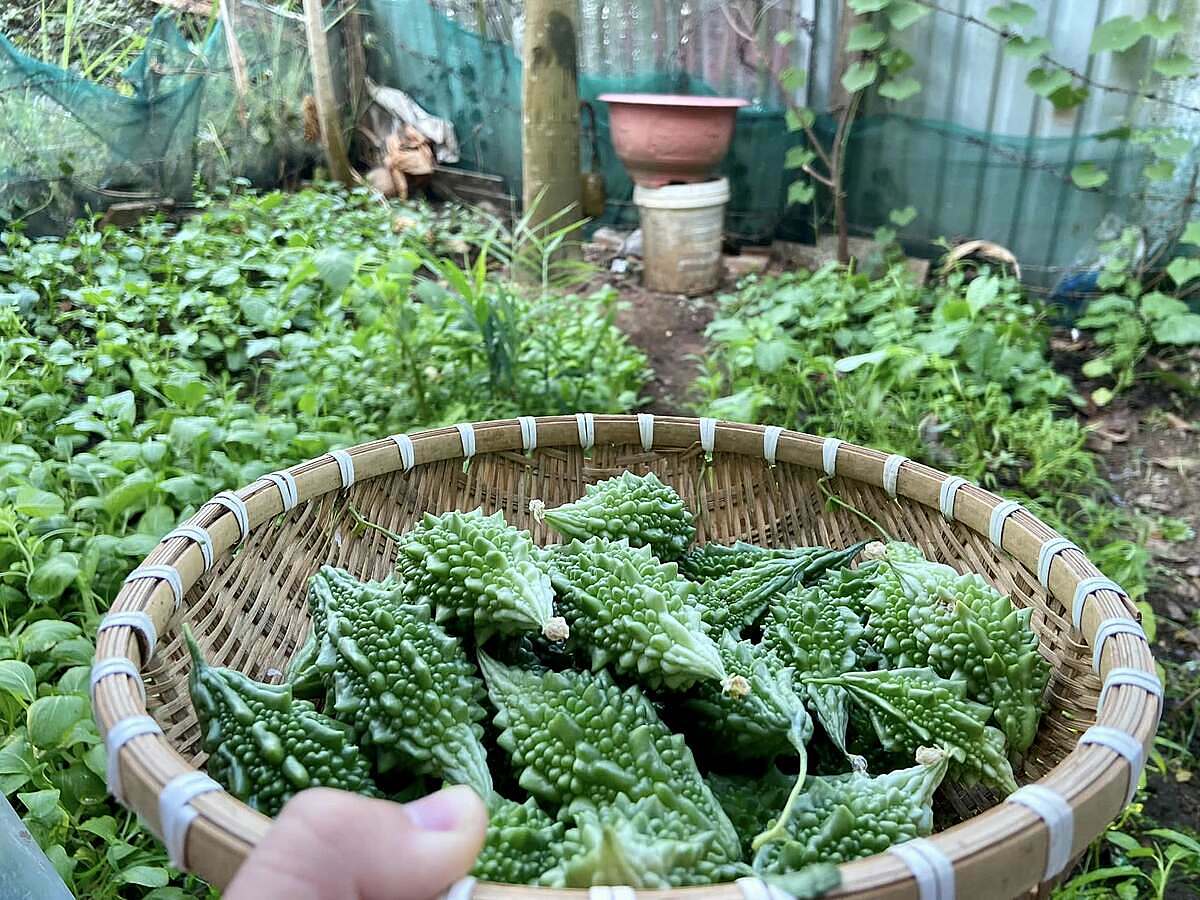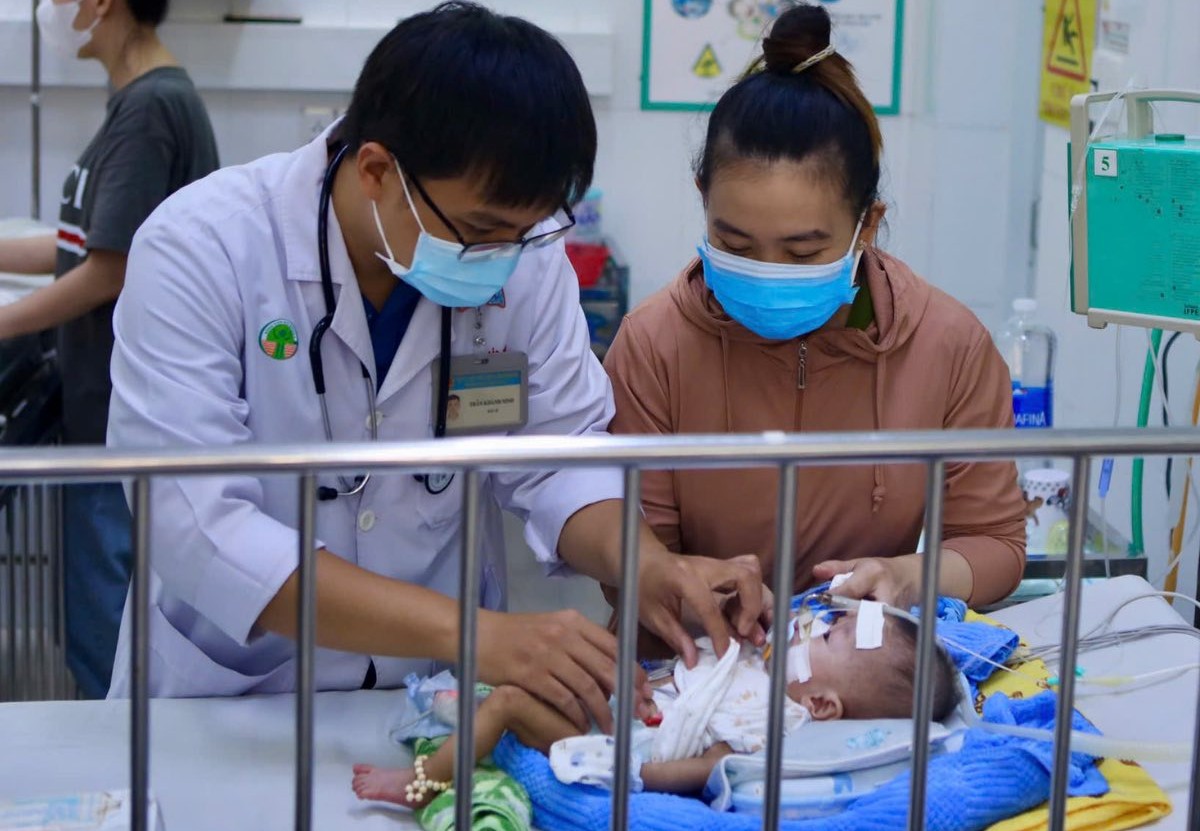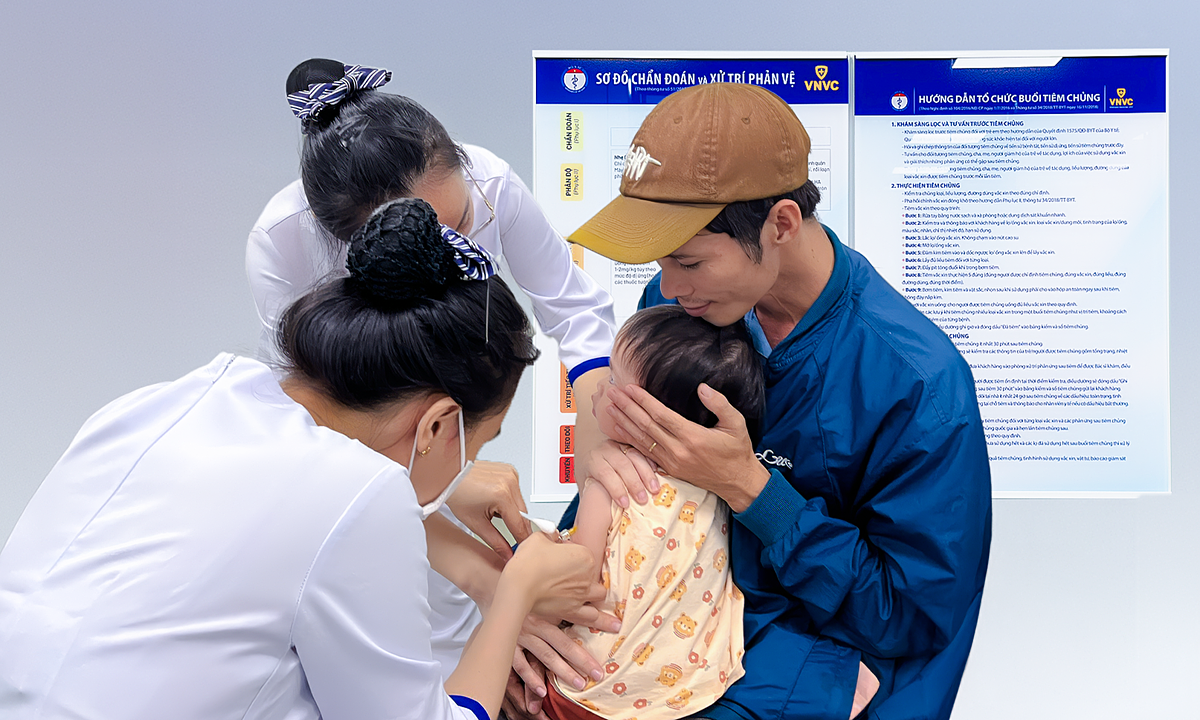For the past three years, Quynh's family has rarely eaten out. She creates her own recipes and uses mostly organic ingredients. She carefully plans her children's weekly meals, focusing on foods rich in vitamins A, C, and D, and incorporating traditional Vietnamese dishes believed to be beneficial for the lungs and respiratory system, such as frog porridge with mung beans, carp porridge, and black-bone chicken stew with medicinal herbs.
Quynh transformed a vacant plot of land at her home into a vegetable garden, growing spinach, mustard greens, sweet potatoes, guavas, chili peppers, squash, and balsam apple. Every morning and evening, she takes her children to the garden to plant, remove pests, weed, fertilize, and harvest. She believes that gardening together improves both their physical and mental health.
"Occasionally, my children might catch a cold, have a fever, or contract an illness from school or seasonal changes," Quynh said, "but boosting their physical health strengthens their resistance."
 |
A corner of Thu Quynh's garden and a harvest with her children. Photo: NVCC |
A corner of Thu Quynh's garden and a harvest with her children. Photo: NVCC
Quynh adopted these preventative measures after her youngest son, Kem, suffered from influenza that developed into pneumonia in mid-2022. His condition worsened, with a high fever of 40 degrees Celsius, coughing, and difficulty breathing. It took over a month for him to recover. To better care for and spend more time with her children, Quynh resigned from her public school teaching position and started tutoring from home.
Nguyen Hoang, 32, from Long Truong, Ho Chi Minh City, took out a bank loan to buy a car to protect her 3-year-old daughter from rain, sun, and pollution while commuting to school. She explained that air pollution and fluctuating weather can make children sick, and she wants to minimize the risks for her daughter.
At home, Hoang installed curtains to block dust at the entrance and purchased an air purifier to remove pollutants and odors. She instructed the housekeeper to limit her daughter's time outdoors and ensure she wears a mask when going out, avoiding contact with anyone who appears ill. During meals, the family carefully supervises her daughter to prevent choking or eating too quickly. When dining out or attending gatherings, Hoang brings her daughter's milk, snacks, home-cooked meals, and disinfectant spray.
Last week, she took her daughter and housekeeper to VNVC for flu vaccines as an added layer of protection during the unpredictable weather. Since the housekeeper is in close contact with her daughter, getting vaccinated helps prevent transmission.
 |
Children receiving treatment for respiratory illnesses caused by hot and rainy weather at Children's Hospital 2, Ho Chi Minh City, on 8/8. Photo: Children's Hospital 2 |
Children receiving treatment for respiratory illnesses caused by hot and rainy weather at Children's Hospital 2, Ho Chi Minh City, on 8/8. Photo: Children's Hospital 2
According to Dr. Nguyen Tien Dao, Medical Manager of VNVC Vaccination System, the hot and rainy summer weather creates ideal conditions for pathogens to thrive. Children have underdeveloped immune systems, making them susceptible to respiratory illnesses and complications like bronchiolitis, pneumonia, and asthma. Sudden temperature changes from sun to rain, combined with environmental pollution and dust, increase the risk of respiratory illnesses and the development of pneumonia.
To protect children's health, especially as they prepare to return to school, Dr. Dao recommends limiting their exposure to hot weather and rain, which can cause dehydration, exhaustion, and increase susceptibility to illness. When outdoors, children should be well-protected and avoid strenuous activity during peak heat and strong UV radiation.
After playing in the sun, children should not immediately bathe, sit in front of strong fans, or enter air-conditioned rooms, as this can cause thermal shock. Instead, use a cotton towel to absorb sweat, provide water at room temperature, and use a gentle fan to gradually lower their body temperature.
 |
Children receiving pneumococcal vaccines to prevent pneumonia at VNVC Vaccination System. Photo: Dieu Thuan |
Children receiving pneumococcal vaccines to prevent pneumonia at VNVC Vaccination System. Photo: Dieu Thuan
Families should promote their children's health through a healthy lifestyle, a balanced and varied diet, and limited screen time. Meals should include fresh fruits, vegetables, vitamins, minerals, and fiber to boost immunity. Parents should also encourage children to drink plenty of water, especially mineral-rich and vitamin-rich beverages.
Vaccination is also a crucial way to protect children from respiratory illnesses that can cause pneumonia and meningitis, such as measles, influenza, pneumococcal disease, chickenpox, dengue fever, Japanese encephalitis, and meningococcal disease.
Vietnam currently has five vaccines against common pneumococcal bacteria, suitable for various ages from 6 weeks old to adults. Depending on age and technology, each vaccine has a different number of doses and booster schedule. The flu vaccine is recommended for individuals 6 months and older. Children between 6 and 9 months need two doses, while those 9 months and older require only one dose annually.
Binh An
At 8 PM on 15/8, VNVC Vaccination System will host an online consultation: "Effective Pneumococcal Vaccination: Preventing Pneumonia and Meningitis in Children". The program will feature:
Dr. Nguyen An Nghia, Deputy Head of the Department of Infectious Diseases and Neurology, Children's Hospital 1, Ho Chi Minh City
Dr. Nguyen Tien Dao, Medical Manager, VNVC Vaccination System
The program will be broadcast on VnExpress, VNVC, Tam Anh General Hospital, and Nutrihome nutrition clinic media channels. Readers can submit questions here.












